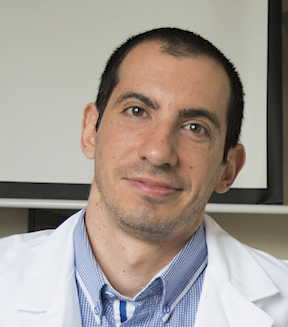
Salvador Dura-Bernal is a Research Scientist at NKI and an Assistant Professor in the department of Physiology and Pharmacology at SUNY Downstate. He completed his MSc in Canary Islands, Spain, then his PhD and first post-doctoral fellowship at the University of Plymouth, UK; followed by post-doctoral research at Johns Hopkins and SUNY Downstate. His research focuses on understanding cortical circuits through large-scale biophysically-detailed simulations on supercomputers. Dr. Dura-Bernal has developed the most detailed models of mouse primary motor cortex (M1) and macaque auditory cortex (A1) circuits by integrating experimental data available at multiple scales — molecules, neurons, networks and systems. The models provided insights into cortical dynamics, physiological oscillations, information flow and molecular neuromodulatory mechanisms, which helped develop new hypotheses and guide experimentation. He also developed a software tool (www.netpyne.org) for multiscale modeling of brain circuits. It has already been used worldwide in over 40 labs, to train students and to investigate different brain regions and phenomena. The tool can help to better understand neural brain function and disorders, and aid in developing novel pharmacological or neurostimulation treatments.
Dr. Dura-Bernal has published over 30 peer-reviewed papers. He was invited to present his work at the 2018 Google Next supercomputing conferences in London and San Francisco, and to give seminars at multiple institutions including JHU, NYU, MIT and Brown University. He received the 2019 Robert Furchgott Scholar Award for Excellence in Research, an early career investigator prize; and the 2017 Best Use of AI Award from HPCwire, a leading supercomputing publication. He was recently elected a member of the NeuroML Editorial Board, an international initiative to standardize brain network models. Dr. Dura-Bernal has obtained funding for his research from the NY State Spinal Cord Injury Board, the National Institutes of Health (NIH) and the National Science Foundation (NSF), and is currently the Principal Investigator (PI) in three research grants. In 2019 he was awarded a 5-year $1.2 million NIH grant (single PI) on multiscale modeling of brain circuits.

